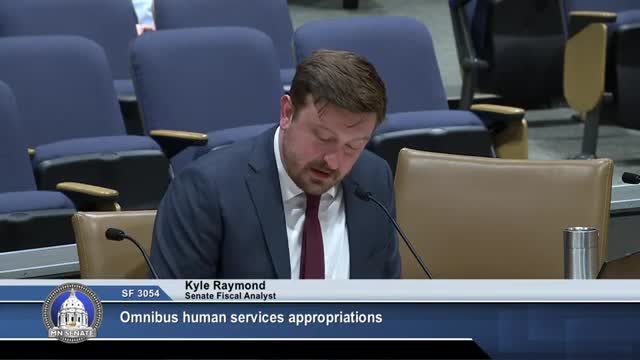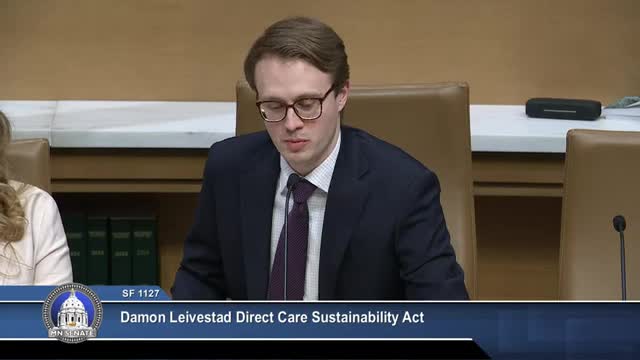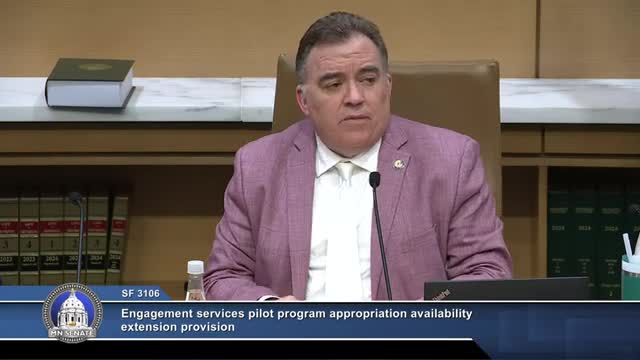Article not found
This article is no longer available. But don't worry—we've gathered other articles that discuss the same topic.

Senate committee advances human services omnibus framework; A‑1 adopted, major nursing‑home and waiver changes remain under review

Committee hears Damon Lifestet Act with enhanced rate tiers, asset‑limit changes and hospital CFSS reimbursement; bill laid over

Committee adopts author amendment to extend engagement services pilot; Otter Tail providers seek supplemental rate for supportive housing beds

